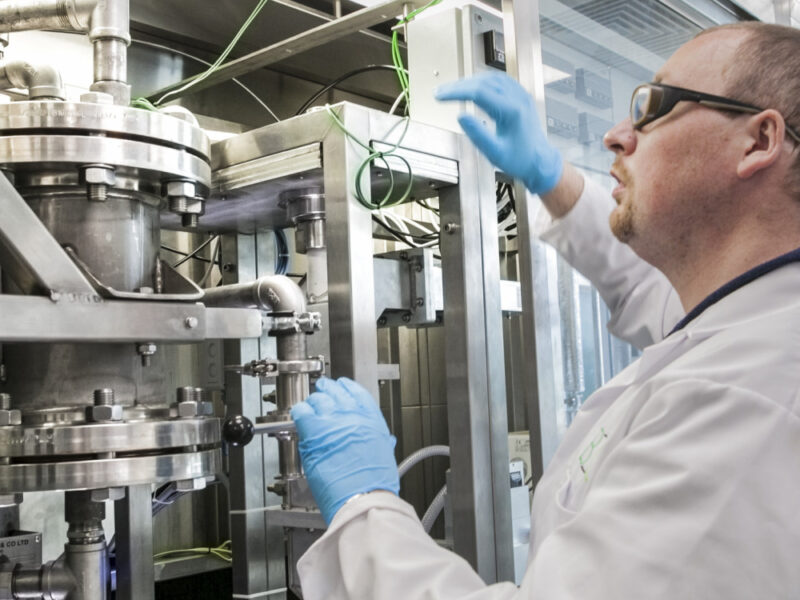Industrial chemicals from waste biogenic CO2 derived from UK Anaerobic Digestion plants
- Project lead
- Jude Onwudili
- Institute
- Aston University
Summary:
Many researchers, policy makers and other stakeholders are beginning to realise the important positive contributions that negative carbon emissions can make towards the achievement of Net Zero by 2020. Low-carbon processes that use biomass and organic waste feedstocks such as anaerobic digestion, fermentation and biomass-fired power plants still generate a lot of carbon dioxide (CO2). Utilising the CO2 emitted from these sources to make long-live chemicals is a form of negative carbon emission, by locking up the CO2 in materials for a long time.
Mono Carbon Limited and Aston University will partner to carry out a technical review and series of experimental work on the development of a new technology route for CO2 utilisation as a feedstock to produce biobased platform chemicals. The project will focus on the availability and benefits of utilising CO2 waste streams from existing and proposed UK Anaerobic Digestion (AD) plants. The study will substantiate the market opportunity for the targeted biobased chemical, as a chemical product outcome or as an intermediate to produce secondary and tertiary materials and polymers for long-term carbon storage. This will also provide the background to consider wider platform chemical options to further develop the innovative utilisation of biogenic CO2 from AD plants, offering a potential business opportunity for integrated AD biorefineries.
This project is currently underway. Aims, objectives and impact will be publicised upon completion.
Aims:
This research aimed to explore experimental methods for converting CO₂ into valuable chemicals. CO₂ sourced from biogas was simulated using bottled CO₂. Two conversion routes were investigated: (1) transforming CO₂ into reactive CO as an intermediate, and (2) thermochemical conversion of CO₂ with bio-derived compounds to produce carbon-carbon coupled products via CO₂ functionalisation.
Outcomes:
CO₂ is a major greenhouse gas produced from fossil fuel combustion, organic matter degradation in AD plants and bio-ethanol plants as well as biomass-fired power plants. While CO₂ capture helps mitigate climate impact, converting it into long-lived products offers added benefits. This project, in collaboration with an industrial partner, explored ways to transform CO₂ into useful organic compounds. Initial attempts to convert CO₂ into CO failed due to high temperature requirements. Later, reactions using CO₂-derived molecules like formic acid with alcohol salts showed promise, producing carbon-carbon coupled products. These molecules can be synthesised from any known sources of biogenic CO2.These findings suggest potential for new CO₂-based compounds, though further research is needed to optimise the reaction process and improve yields.
Impact:
The work carried out in this project has enabled academic impact by providing the background that has led to the formulation a new PhD project, linked to the NET2ZERO Centre for Doctoral Training starting in October 2025. The potential of converting a biogenic CO2-derived molecules into long-lived product has both industrial and societal benefits.
Academic partner: Jude Onwudili, Aston University
Industrial partner: Sergio Blanco-Rosete, Mono Carbon Limited




